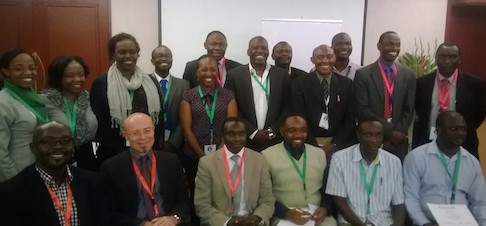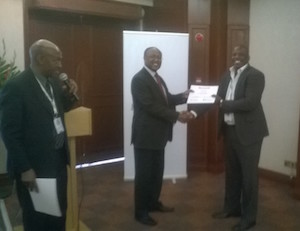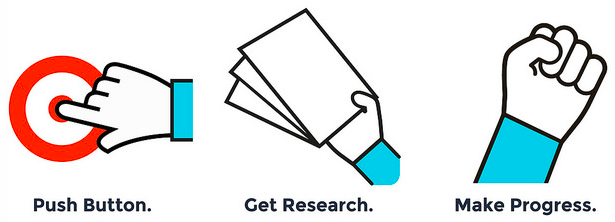LRMI stewardship transferred to Dublin Core Metadata Initiative
jeudi 23 octobre 2014 à 20:05
Re-post from: http://www.lrmi.net/lrmi-transfers-stewardship
Effective October 23, 2014, leadership and governance of the Learning Resource Metadata Initiative (LRMI), an education metadata project developed to improve discoverability and delivery of learning resources, have transferred from the Association of Educational Publishers and Creative Commons to the Dublin Core Metadata Initiative (DCMI).
This long-planned transfer represents a logical next step for the LRMI since the project has reached the end of its initial scope of work. DCMI will take the leadership role in advancing the project into its next phase with AEP and CC engaged as active LRMI community members.
“Creative Commons and AEP are happy to add this governance transfer to the long list of successes we’ve achieved together on the LRMI project,” said Cable Green, Director of Global Learning at Creative Commons. “After a long and careful evaluation process, the LRMI leadership identified a candidate in DCMI that is well-established and highly respected in the metadata sector and will carry on the LRMI’s spirit of transparency and community involvement.”
“AEP has enjoyed the opportunity to work alongside our partners Creative Commons the past three years to get the LRMI effort off the ground, build a community of practice, and finally, to establish a plan for long-term sustainability for the project,” said Dave Gladney, Project Manager of the AEP LRMI project, which has been housed at the Association of American Publishers since the merger of AEP and AAP in July 2013. “With this transfer, we’re confident that we’re leaving the LRMI with the ideal steward for long-term success.”
“DCMI is pleased to assume stewardship of LRMI at this key, long-planned transition in its development,” said Eric Childress, DCMI Governing Board Chair. “Meeting the metadata needs of the education and training community has been a goal of DCMI since the founding of its Education Community in 1999. DCMI has played encouraging, advisory roles in development of the LRMI specification from the inception of Phase I technical development in 2011 under the leadership of AEP and Creative Commons. DCMI is now poised to provide LRMI with both a permanent home that assures the long-term sustainability of the specification and an open, collaborative context for future community-driven development.”
More information about the transfer and the project follows.
Background
The LRMI began in 2011 shortly after the announcement of Schema.org, a search engine-backed standard for tagging content on the web. AEP and Creative Commons, with funding from the Bill & Melinda Gates Foundation and the William and Flora Hewlett Foundation, set out to extend the general Schema.org hierarchy with a lightweight set of metadata properties that could describe the instructional intent of a web page, resource or piece of content. The resulting LRMI specification version 1.1 was accepted as an official extension of Schema.org in April 2013. Additionally, AEP and Creative Commons have worked closely together throughout the past three years to meet dozens of important project milestones.
The third and final Gates-funded phase of the project focused on long-term sustainability and success. Among other Phase III projects, the LRMI leadership team has worked over the past six months to identify the ideal next-phase steward for the LRMI specification. This process included surveying the LRMI community, identifying potential candidates, measuring each candidate against a list of agreed-upon requirements and vetting candidates through a series of interviews.
Why DCMI was chosen
DCMI was chosen based on its status as a well-known, well-respected name in the metadata space; its open governance structure, which closely aligns with the open spirit of the LRMI; and its ongoing connection to the LRMI through the involvement of DCMI’s Managing Director and Education Community chair, Stuart Sutton, on the LRMI Technical Working Group.
DCMI’s next-stage priorities
DCMI stewardship of the LRMI specification will include:
- Moving the canonical representation of the specification from lrmi.net to dublincore.org with appropriate cross referencing between the two websites.
- Creating a permanent LRMI Task Group within the context and working processes of the DC Education Community to supplant the original LRMI Technical Working Group for:
- Ongoing maintenance of the LRMI 1.1 specification
- Assessment of open community input as the means for defining future development of the specification
- Management of transparent editorial and decision-making processes in executing further developments
- Supporting open community communications through a Jiscmail list for the new LRMI Task Group (public “read”) and through the existing DC-Education Jiscmail list (public “join/read/write”). Public conversations on the existing, open LRMI Google Group will be continued until the coordination of two public lists is deemed by DCMI to be no longer tenable. During this time, current members of the Google Group will be encouraged to join the Jiscmail lists.
- Initiating immediate engagement with Schema.org to coordinate changes in its cross-referencing for LRMI and the potential development of additional developer/web master documentation at schema.org of those aspects of LRMI 1.1 it has adopted in support of learning resource markup.
For more information:
- Stuart Sutton, Managing Director, DCMI (sasutton@dublincore.net)
- Cable Green, Director of Global Learning, Creative Commons (cable@creativecommons.org)
- Dave Gladney, LRMI Project Manager, AEP (dgladney@publishers.org)
—————-
About Creative Commons
Creative Commons (http://creativecommons.org/) is a globally-focused nonprofit organization dedicated to making it easier for people to share and build upon the work of others, consistent with the rules of copyright. Creative Commons provides free licenses and other legal tools to give everyone from individual creators to large companies and institutions a simple, standardized way to grant copyright permissions and get credit for their creative work while allowing others to copy, distribute, and make specific uses of it.
About the Association of Educational Publishers
The Association of Educational Publishers (AEP) is the 501(c)(3) arm of the Association of American Publishers. At the inception of the LRMI in 2011, AEP was an independent organization serving the educational resource community with programs, events, advocacy, and thought leadership. In July of 2013, AEP merged with the AAP School Division to form the PreK-12 Learning Group. Most of AEP’s programs were transferred over to the newly-formed Learning Group pursuant to the merger, but LRMI projects and administration of grant funding continued on under the 501(c)(3).
About the Association of American Publishers
The members of AAP are building the future of publishing. AAP represents America’s premier creators of high-quality entertainment, education, scientific and professional published content. They include commercial and not-for-profit organizations, scholarly societies, university presses, educational technology companies and digital start-ups. These nearly 450 organizations dedicate the creative, intellectual, financial and technological investments to bring great ideas to life and deliver content to the world’s diverse audiences in all the ways they seek it.
About Dublin Core Metadata Initiative (DCMI)
DCMI is a global community that has played key roles in the development of best practices in metadata modeling, design and implementation since 1995. The DCMI community has developed and maintains some of the major languages of description used on the Web and in systems. DCMI’s principles of operation are open consensus building, international scope and participation, neutrality of purpose and business models, neutrality of technology, and a cross disciplinary focus. DCMI is a project of ASIS&T, a U.S. 501(c)(3) nonprofit, and is supported through membership programs for both individuals and organizations.







